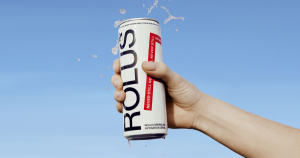Seedlip is popping up at Spirited Away this month and it has me thinking about all the reasons I love distilled botanical spirits. If you’re daunted by the novel flavors of distilled botanicals or don’t know what to do with them, this is for you.
One of the reasons I love distilled botanicals is that their makers often focus on botanicals grown in their specific region of the world, leading some to refer to them as terroir botanical spirits. Ovant gathers botanicals locally in Margaret River, Australia, Abstinence from the southern cape of South Africa, Pentire on the Cornish coast of the UK, et. al. Often I find that a distilled botanical spirit is my first and only exposure to the flavors of that particular ingredient, especially if it’s sourced from a different part of the world. Bax Botanics’ Sea Buckthorn spirit is – to the best of my knowledge – the only place I’ve ever tasted sea buckthorn, a tart and sour berry from deciduous shrubs native to Northern Europe and Asia.
Related to terroir, I find that novel flavors slow my pace of consumption. Alcoholic cocktails have their own built in pacing mechanism. Drink ethanol too quickly and the stomach becomes irritated, creating feelings of nausea. Adult drinkers new to non-alc often remark that they find non-alc drinks go down too quickly. In my experience, a novel flavor to ponder does wonders for slowing the pace of drinking. Botanicals are often an acquired taste, so I don’t think many people love them upon first sip.
Unlike a Coca-Cola, which is immediately addictive and begs to be sipped again, botanicals can be like having oysters for the first time. You think you like them, but you need to consume slowly and consider the flavors. Part of the fun for me is being present and aware of that process while it’s taking place. I didn’t love my first sip of Herbarium, for instance, but by the end of the bottle I found myself wanting more.
Read the full post on Dry Atlas and check out a comparison chart of three of my favorite distilled botanicals.
Odds and Ends
Even if you haven’t heard the term “French Paradox,” you’re probably familiar with the concept: how is it that the French, with a diet notoriously high in butter, cheese and other saturated fats, have a relatively low incidence of coronary heart disease?
You’ve probably also heard an explanation for the paradox: that the French drink a lot of red wine and that red wine is heart healthy. That, of course, is completely false.
The correct answer to the French paradox is that there is no paradox. If you want to fall down a fascinating rabbit hole, google “Ancel Keys” or “diet heart hypothesis.” TLDR, there was never any good evidence that a diet high in saturated fats leads to coronary heart disease. But Keys’ diet heart hypothesis is still today probably the most influential study in the history of nutrition science.
Alcohol’s reputation is crumbling
Bradley Cooper with Barbara Walters on not drinking
Waking up early gets a lot easier when you go booze-free and waking up early is the move. Every last word of this is spot on.





